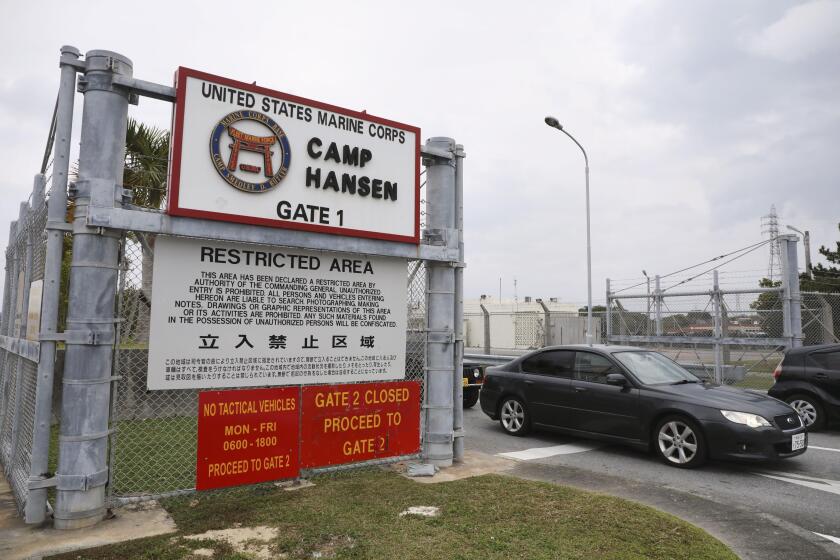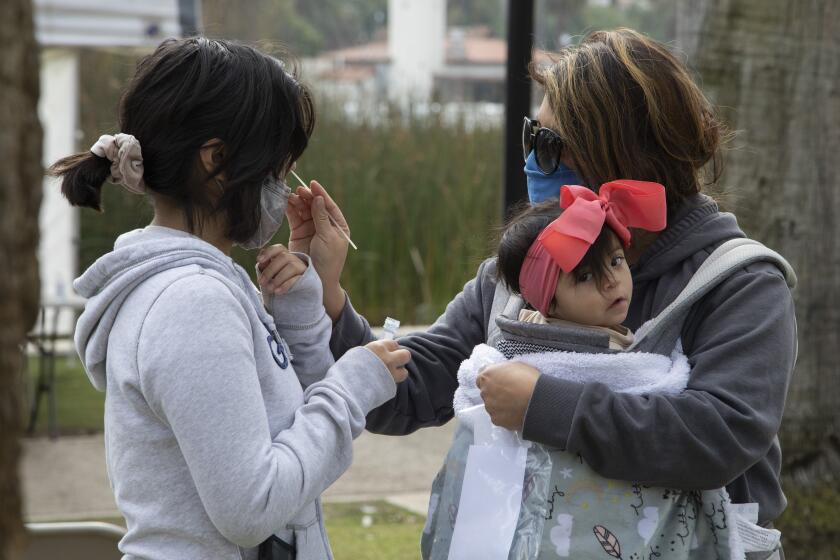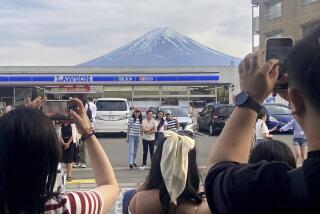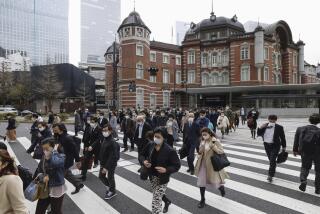Japan beefs up coronavirus restrictions again as Omicron surges in cities
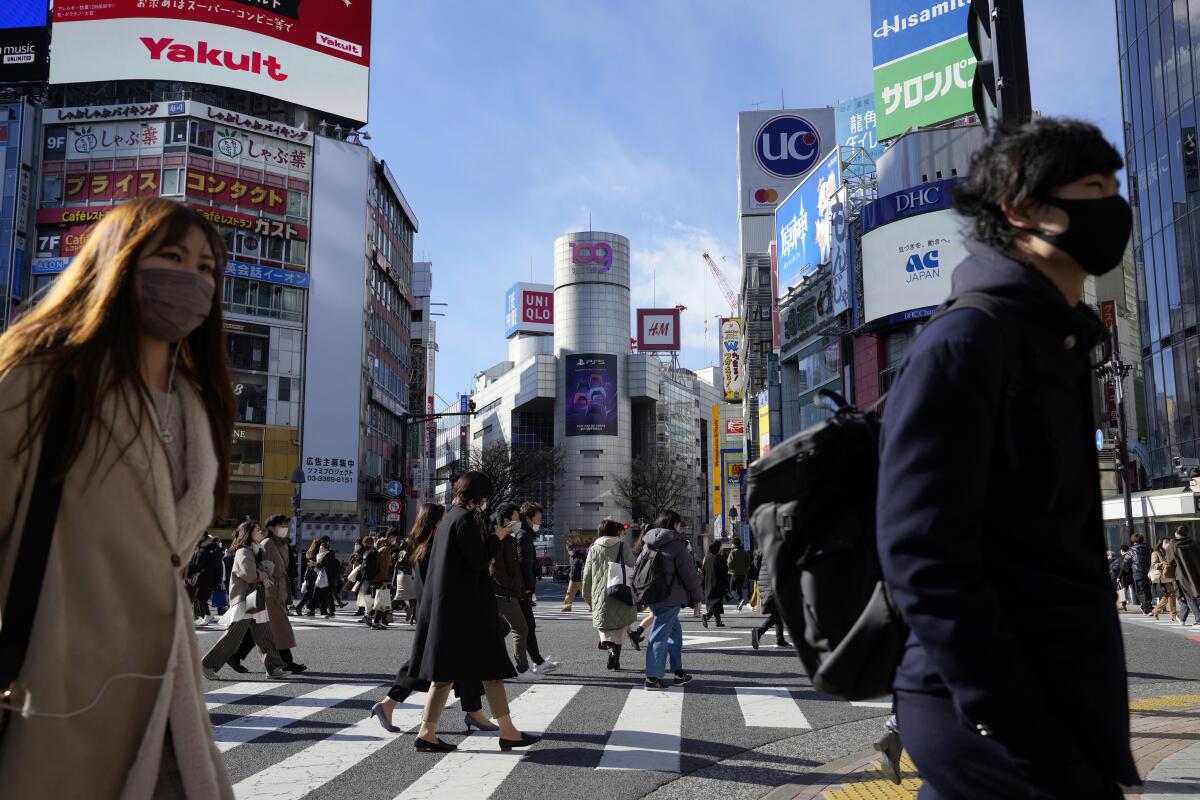
- Share via
TOKYO — Restaurants and bars will close early in Tokyo and a dozen other areas across Japan beginning Friday as the country widens coronavirus restrictions because of the Omicron variant, which has caused cases to surge to new highs in metropolitan areas.
The move, which is something of a pre-state of emergency, is the first since September and is scheduled to last through Feb. 13. With three other prefectures — Okinawa, Hiroshima and Yamaguchi — under similar measures since early January, the state of constraint now covers 16 areas, or one-third of the country.
While many Japanese adults are fully vaccinated against COVID-19, only 1.4 % of the population has gotten a booster shot, which offers extra protection against the highly contagious Omicron variant.
Throughout the pandemic, Japan has resisted the use of lockdowns in order to minimize damage to the economy, focusing instead on requiring eateries to close early and not serve alcohol and on urging the public to wear masks and practice social distancing.
Under the latest measures, most eateries are asked to close by 8 or 9 p.m., while large events can allow full capacity if they have anti-coronavirus plans. In Tokyo, certified eateries that stop serving alcohol can stay open until 9 p.m., while those serving alcohol must close an hour earlier.
Restaurants that close at 9 p.m. and don’t serve alcohol receive 30,000 yen ($263) per day in government compensation, while those that close at 8 p.m. get 25,000 yen ($220) per day.
The Japanese foreign minister has asked that the U.S. military in Japan stay inside its bases to help prevent the further spread of COVID-19.
Critics say the measures, which almost exclusively target bars and restaurants, make little sense and are unfair.
Mitsuru Saga, the manager of a restaurant in downtown Tokyo, said he chose to serve alcohol and close at 8 p.m. despite receiving less compensation from the government.
“We cannot make business without serving alcohol,” Saga said in an interview with Nippon Television. “It seems only eateries are targeted for restraints.”
Some experts question the effectiveness of placing constraints only on eateries, noting that infections show no signs of slowing in the three prefectures that have already been subjected to the measures for nearly two weeks.
The rapid spread of the coronavirus appears to be decelerating, another indication the state is on the downslope of the Omicron spike
After more than two years of repeated restrictions and social-distancing requests, Japanese are increasingly becoming less cooperative with such measures. People are back to commuting on packed trains and shopping at crowded stores.
Tokyo’s main train station of Shinagawa was packed as usual with commuters rushing to work Friday morning.
Japan briefly eased border controls in November but quickly reversed them to ban most foreign entrants when the Omicron variant began spreading in other countries. Japan says it will stick to the stringent border policy through the end of February as the country tries to shore up its healthcare system.
The tough border controls have triggered criticism from foreign students and scholars who say the measures are not scientific.
News Alerts
Get breaking news, investigations, analysis and more signature journalism from the Los Angeles Times in your inbox.
You may occasionally receive promotional content from the Los Angeles Times.
A group of scholars and Japan-U.S. experts recently launched a petition, led by Japan Society head Joshua Walker, calling on Prime Minister Fumio Kishida and his government to allow foreign scholars and students to enter the country again under careful preventive measures.
Japan recently announced that it would allow 87 students on Japanese government scholarships to enter the country, but petitioners say there are many others on foreign government-sponsored scholarships who still cannot get in.
Tokyo logged 9,699 new coronavirus cases Friday, exceeding the record 8,638 from the day before.
Surging infections have begun to paralyze hospitals, schools and other sectors in some areas.
The government has trimmed the required self-isolation period from 14 days to 10 for those who come into close contact with someone who tests positive for the coronavirus, and to seven days for essential workers if they test negative.
More to Read
Sign up for Essential California
The most important California stories and recommendations in your inbox every morning.
You may occasionally receive promotional content from the Los Angeles Times.
